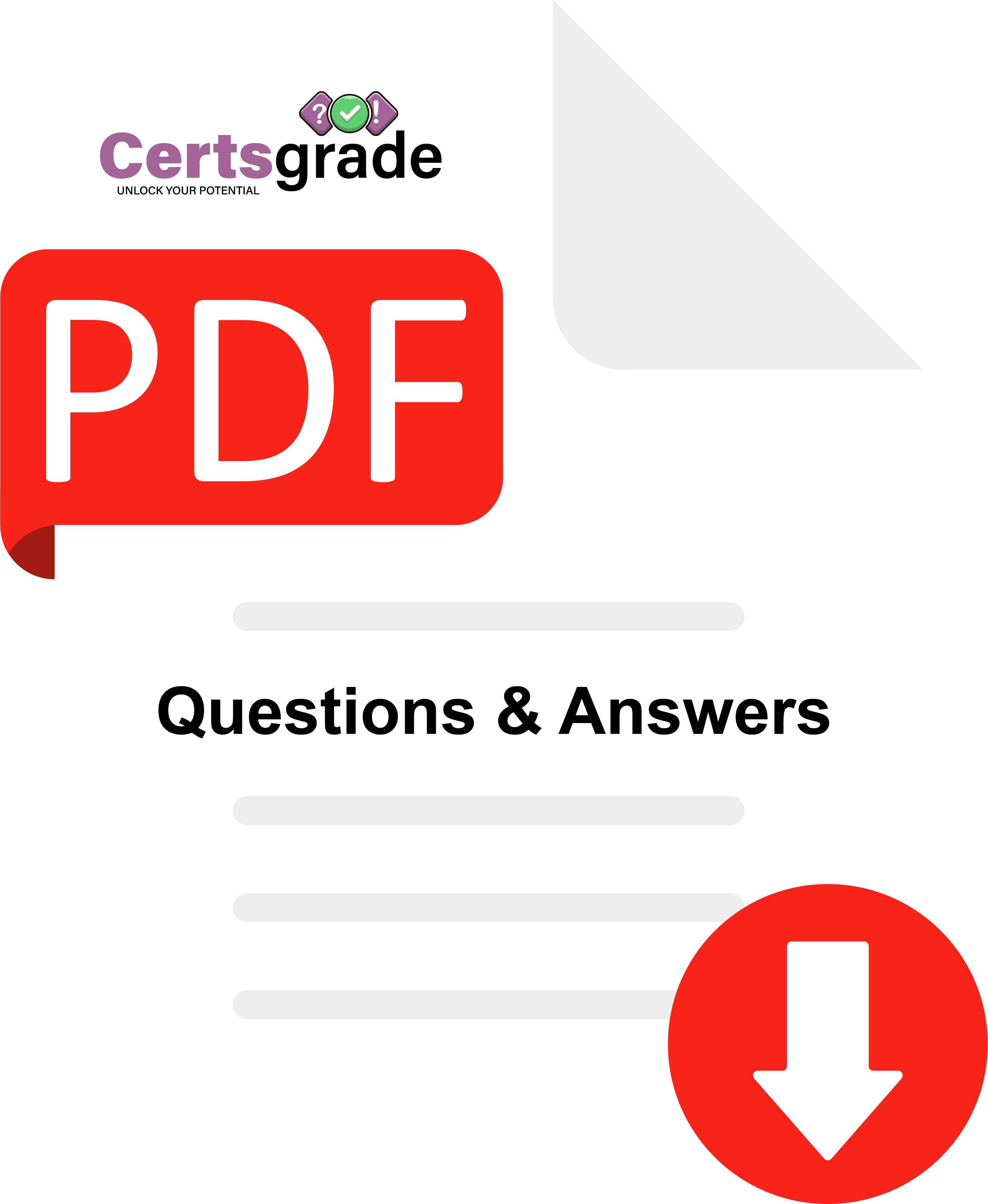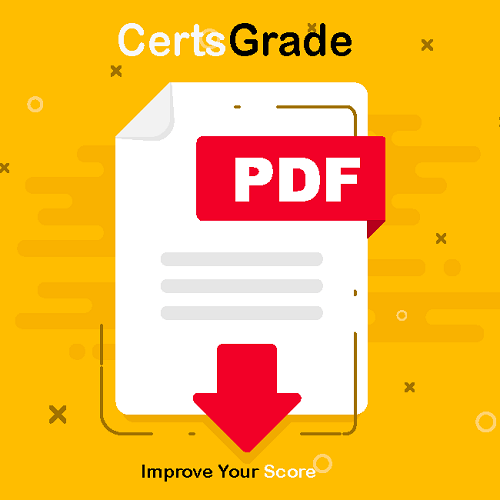 AACN CCRN-Pediatric
AACN CCRN-Pediatric
- Last Updated :
Latest AACN CCRN-Pediatric Questions Answers
$49.00
I was skeptical about using online study materials, but this site proved me wrong. The practice questions are very similar to the actual exam.
CertsGrade's study resources for Cloud Digital Leader were instrumental in my success. The content was well-structured and aligned with the exam objectives.
The PDF study materials from CertsGrade are comprehensive, simplifying complex subject matter.
PDF Dumps for Certsgrade AACN CCRN-Pediatric Exam Practice
An Overview of AACN CCRN-Pediatric Exam
The American Association of Critical-Care Nurses (AACN) is a professional organization that provides resources and support to nurses who work in critical care settings. One of the ways that AACN supports nurses is by offering nursing certification exams, including the AACN CCRN-Pediatric exam.
What is the AACN CCRN-Pediatric Exam?
The Pediatric CCRN exam is designed for nurses who work with critically ill pediatric patients. The exam covers a range of topics, including cardiovascular, pulmonary, neurological, gastrointestinal, and endocrine systems, as well as pharmacology, ethical and legal issues, and professional practice. Passing this nursing exam demonstrates that a nurse has the knowledge and skills needed to provide high-quality care to critically ill children.
Eligibility and Registration
To be eligible to take the AACN CCRN-Pediatric exam, a nurse must have an active RN license and at least 1,750 hours of direct bedside care in a pediatric critical care setting within the previous two years, or at least 2,000 hours of direct bedside care in a pediatric critical care setting within the previous five years. Nurses who meet these requirements can register for the exam on the AACN website.
Exam Format and Scoring
The AACN CCRN-Pediatric exam is a computer-based test that consists of 150 multiple-choice questions. Nurses have three hours to complete the exam. The exam is scored on a scale of 0-1250. Nurses receive their scores immediately after completing the AACN CCRN-Pediatric exam.
Exam Content
The AACN CCRN-Pediatric exam covers a range of content areas, including:
- Cardiovascular: assessment, monitoring, and treatment of cardiovascular conditions in pediatric patients, including heart failure, shock, and arrhythmias.
- Pulmonary: assessment, monitoring, and treatment of respiratory conditions in pediatric patients, including acute respiratory distress syndrome (ARDS), asthma, and pneumonia.
- Neurological: assessment, monitoring, and treatment of neurological conditions in pediatric patients, including traumatic brain injury (TBI), seizures, and meningitis.
- Gastrointestinal: assessment, monitoring, and treatment of gastrointestinal conditions in pediatric patients, including acute liver failure, pancreatitis, and inflammatory bowel disease (IBD).
- Endocrine: assessment, monitoring, and treatment of endocrine conditions in pediatric patients, including diabetes, thyroid disorders, and adrenal insufficiency.
- Pharmacology: knowledge of medications commonly used in the care of critically ill pediatric patients, including dosing, side effects, and contraindications.
- Ethical and Legal Issues: knowledge of ethical and legal issues related to the care of critically ill pediatric patients, including informed consent, end-of-life care, and patient rights.
- Professional Practice: knowledge of professional standards and guidelines related to the care of critically ill pediatric patients, including infection control, patient safety, and quality improvement.
Course Objectives for AACN CCRN-Pediatric Exam Preparation
The AACN CCRN-Pediatric exam covers a broad range of knowledge and skills related to the care of critically ill pediatric patients. It’s important to note that this is not an exhaustive list of potential topics, and the actual exam may cover additional or different material. Candidates are encouraged to review the exam content outline provided by the AACN and to study a variety of resources to ensure a comprehensive understanding of pediatric critical care concepts. Here are some potential topics that could be covered on the exam:
- Anatomy and physiology of the pediatric patient
- Pathophysiology of common pediatric illnesses and conditions
- Pharmacology and medication administration in the pediatric population
- Assessment and management of pediatric respiratory distress, including mechanical ventilation
- Hemodynamic monitoring and management in the pediatric patient
- Assessment and management of pediatric shock
- Assessment and management of pediatric neurological disorders, including seizures and traumatic brain injury
- Assessment and management of pediatric cardiac disorders, including arrhythmias and congenital heart defects
- Nutritional support for critically ill pediatric patients
- Ethical and legal considerations in pediatric critical care
Benefits of AACN CCRN-Pediatric Certification
Obtaining certification through the Pediatric CCRN exam can provide a number of benefits to nurses, including:
- Increased knowledge and skills related to the care of critically ill pediatric patients.
- Recognition of expertise in pediatric critical care nursing.
- Opportunities for professional advancement and career development.
- Enhanced credibility with patients, families, and colleagues.
- Improved patient outcomes and quality of care.
Conclusion
The AACN CCRN-Pediatric exam is a valuable certification for nurses who work in pediatric critical care settings. The exam covers a range of content areas and provides nurses with the knowledge and skills needed to provide high-quality care to critically ill children. Obtaining certification through the Pediatric CCRN exam can provide numerous benefits to nurses, including recognition of expertise, opportunities for professional advancement and many more. In conclusion, this IT course provides a comprehensive overview of the latest technologies and industry best practices. We hope you found it useful. Keep learning and growing! Connect with us on:
